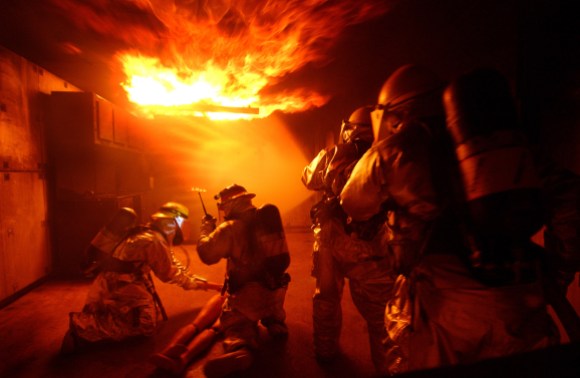
When incidents of online harassment or abusive behavior arise across our movement, community leaders and functionaries often need to make difficult judgment calls.
To help community leaders arbitrate and resolve these incidents, the Wikimedia Foundation Support and Safety team is launching six online training modules for functionaries and community governance groups to use as a resource.
These multilingual resources, designed in conjunction with community leaders from across the movement, are intended to help community leaders respond consistently to harassment or abuse both online and off, and cover topics related to keeping events safe and managing online harassment. In this post, we’ll detail how the modules were designed, what they contain, and how to learn more.
Designing the modules
The six training modules were purposefully designed using a community-centered approach: Communities have the best insight into their own projects, speak the language of their projects, and are on the front lines when dealing with incidents of online and offline harassment.
Responses to the 2015 harassment survey suggested that improving Wikimedia’s governance and creating standardized information about harassment and abuse was of great interest to the community.
Work on the training modules began by launching a series of multilingual surveys. We asked key community groups about the challenges they have faced with harassment, how their current workflows and tools help or hinder them in dealing with abuse, and, if warranted, what they considered effective methods of training.
Several dozen members of various Wikimedia communities responded, and these responses indicated the challenges currently facing stewards, administrators, Arbitration Committee members, and others responsible for mediating and resolving issues with user interactions.
We also reached out to outside academics and industry professionals who research or work in the fields of online collaboration and community health. They provided us their thoughts on what content to include, as well as the best methods to deliver this type of training.
In addition to these direct surveys and interviews, we invited opinion on what form these training modules should take, where they should be hosted, and how they should be presented. Should they be long-form, detailed modules, or presented in shorter, more easily digestible chunks?
Responses indicated a preference for these training modules to be presented as “slides”—short-to-medium-length interactive sections concerning specific topics that could be individually linked to and shared.
We assessed Meta-Wiki and the “Training” setup there, but determined that both were not effective for presenting this type of information. However, the Program and Events Dashboard checked all of the necessary boxes: training can be interactive, accessible—and, crucially, available in multiple languages.
The Support and Safety team would like to use this opportunity to thank Sage Ross of the Wiki Education Foundation, who worked tirelessly to help adapt the Dashboard to host these training modules. His work truly made this project possible.
Now, it was time to really dive into the content.
Creating the content
Starting in October 2016, the Support and Safety team spent three months working on content, focusing on two distinct topics—”Keeping Events Safe” and “Dealing With Online Harassment“.
The first drafts of both modules covered the vast intricacies of harassment on the Wikimedia projects. Once they were complete, we asked for feedback about the drafts from the Wikimedia community. The feedback helped us narrow our focus and really think about what content needed to be included.
As a result, we split the original training model for “Dealing with Online Harassment” into five separate subsections:
- Harassment fundamentals
- Other forms of harassment
- Communication best practices
- Handling reports
- Closing cases
The content was then marked up for translation on Meta-Wiki. The Dashboard is set up so that translated text on Meta-Wiki can be imported into the Dashboard, which allows for the usual translation method to also apply here. This meant that translators don’t have to leave Meta-Wiki to translate content. This feature allow allowed the Dashboard to use Translate Extension’s features such as Aggregate Groups, which allow multiple related pages to be translated at the same time.
Some translation has been completed by staff or contractors as time permits, while other translation has been provided by the incredible volunteer translator community.
We’d like to thank the many volunteers who have worked on this effort. Hebrew is now totally translated (by User:Lionster), while Satdeep Gill translated the vast majority of content into Hindi. Polish is three-quarters done, and Vietnamese is more than halfway to completion. Other languages, such as Japanese, Arabic, Greek, Dutch, and Bangla are quite far along the road to completed translations.
We on the Support and Safety Team would like to use this blog post-slash-announcement to give our heartfelt thanks to those involved with translations. These modules contained a lot of text, and we understand that much of it was very wiki-focused and detailed. This sort of content is by no means easy to translate, so we fully appreciate all of those who took the effort to develop these modules for use in their home communities.
If your language isn’t covered, you can help! Links to translate each module are on Meta-Wiki.
How to learn more
The Support and Safety team will have representatives in attendance at Wikimania in Montréal, where we’ll be talking about the training modules and the process behind them. We’ll also be introducing documentation on how to create modules from scratch, as well as advising contributors on what the modules might be best-used for. We hope you’ll join us there. We can also be reached at ca@wikimedia.org with questions or comments and will do our best to assist.
Joe Sutherland, Community Advocate, Community Engagement
Wikimedia Foundation
This blog post has been updated to highlight the Wiki Education Foundation’s assistance in implementing these modules.

Can you help us translate this article?
In order for this article to reach as many people as possible we would like your help. Can you translate this article to get the message out?
Start translation